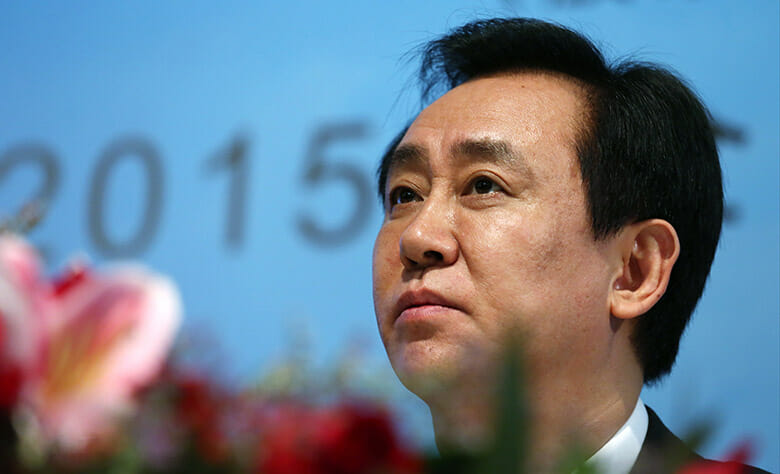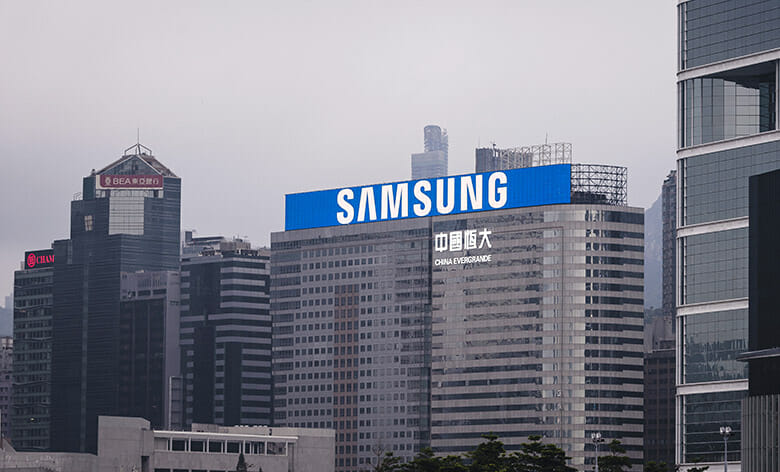
Evergrande boss Xu Jiayin is hoping creditors will give him more time (Getty Images)
China Evergrande Group will meet with holders of a RMB 2.1 billion (US$293 million) onshore bond this Thursday and Friday in a bid to extend the interest payment date by six months as the embattled property developer struggles to meet its debt obligations.
Evergrande has proposed to delay interest payments for the bond “20 Hengda 05” to April 19 next year, from a previous deadline of October 18, according to the developer’s filing to the Shenzhen stock exchange Tuesday.
The five-year bond, issued in October 2020, has a 5.8 percent coupon rate with an option for the issuer to adjust its coupon rate at the end of three years of its issuance and for the holders to sell it back early to the issuer if they don’t agree with the coupon rate change.
Struggling with more than $300 billion in liabilities, the world’s most indebted developer has pushed debt deadlines to avoid fresh defaults that could complicate its restructuring.
Repayment Challenges
Evergrande has successfully delayed interest payments for four onshore bonds this year with issue sizes totaling RMB 24 billion (US$3.3 billion). Those rescheduled obligations include a RMB 4 billion five-year bond and an associated interest payment due last month, a RMB 8.2 billion seven-year bond which matured in July, a RMB 4 billion three-year bond and interest due in May, and a RMB 8.2 billion five-year bond which with an expiry date in April. The developer was granted a six-month extension for each of these debts.

Evergrande’s Hong Kong headquarters are on the market after being seized by creditors
However, debt holders denied a second extension for a RMB 4.5 billion ($670 million) onshore bond in July. In about two weeks’ time, the developer will face a new due date for the RMB 8.2 billion debt it extended in April.
As lenders lose patience, the developer helmed by controversial businessman Xu Jiayin (also known as Hui Ka-yan) has been forced to part with a growing number of assets in recent weeks.
In late September, receivers appointed by the defaulting developer’s creditors launched a fresh tender for the sale of the China Evergrande Centre in Hong Kong just two weeks after seizing the Wan Chai office tower valued at around HK$9 billion ($1.15 billion).
The tender is set to run through 31 October and comes after a sales exercise kicked off by Evergrande around mid-year failed to find a buyer for the 26-storey property which the developer purchased at a record-setting HK$36,232 ($4,615) per square foot in 2015.
In early September a mainland court auctioned off Evergrande’s remaining 14 percent stake in Shenyang-based lender Shengjing Bank via an online platform for $1.1 billion, after the shares had been seized through judicial action. In August, local authorities in Guangzhou agreed to provide Evergrande with a $818 million refund after seizing a football stadium project which the developer had failed to complete.
Evergrande’s Xu, who has seen his net worth shrink by 83 percent since July 2020 according to the Bloomberg Billionaires’ Index, has been forced to sell off shares in the company as well as his personal assets to pay company debts when the Chinese government declined to bail Evergrande out.
London’s most expensive house, a 45-room “private palace” overlooking Hyde Park, is the latest asset to be auctioned off by the embattled billionaire, according to a Financial Times report last week. Xu purchased the mansion for £210 million (now $235.3 million) through a secret arrangement with CC Land chairman Cheung Chung Ku in January 2020 when his net worth was around $31 billion, the report said.
Despite these recent liquidations, Evergrande continues to face a winding-up petition brought by disgruntled creditors in the courts of Hong Kong. The next hearing in that case is scheduled for 7 November.
Debt Leads to Downfall
Fuelled by increasing levels of debt, Evergrande reigned as China’s top developer from 2016 to 2020, but the company dropped to 32nd place in the first half of this year with contracted sales of RMB 22.2 billion – about one-fifteenth of the year-earlier figure.
While China’s real estate sector has been in a down cycle since the end of 2018, Evergrande and other private sector developers that relied on high-leverage business models have been hit the hardest after Beijing introduced the “three red lines” policy in August 2020 to restrict borrowing.
Evergrande rattled global markets last September by warning of impending defaults on its debts, and the crisis soon spread to other major property players such as Kaisa Group, Fantasia Holdings, Sinic Holdings and Sunac.
The embattled developer has been testing the patience of both its local and foreign creditors. Evergrande had promised to deliver a preliminary restructuring scheme for its $19 billion in offshore debt by the end of July, but later changed the due date to the end of this year.
Leave a Reply